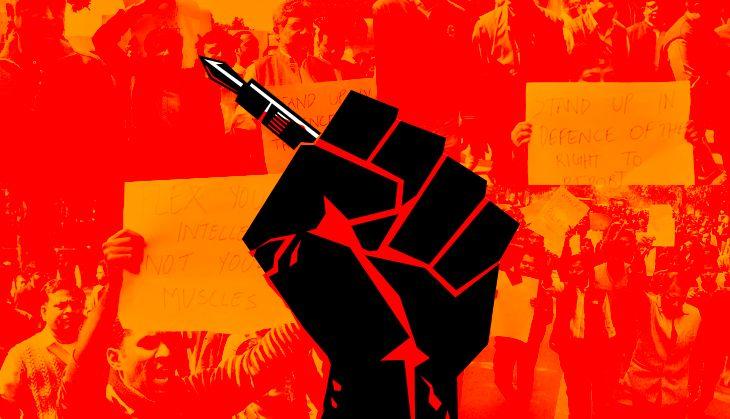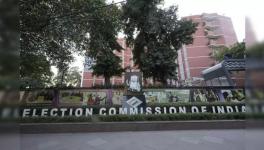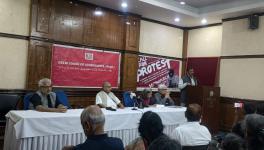Enact a Comprehensive Law to Protect Media From Arbitrary Prosecutions, Journalists' Unions Demand

Image Courtesy: The Leaflet
On the eve of the World Press Freedom Day, 2022, the National Alliance of Journalists (NAJ) and the Delhi Union of Journalists (DUJ), in a statement, have called out the increasing attacks on the media in the past year.
The journalists' bodies demanded a comprehensive law to protect media persons from arbitrary arrests and prosecutions so that they can "fearlessly fight for and uphold free speech, democracy and press freedom today."
In the past year, India has seen numerous instances of police excesses against journalists across the country. In some cases, media persons have faced raids from Central government authorities. In some areas, state police have filed false cases against journalists for media coverage that was inconvenient to certain politicians.
Just a month ago, three journalists were arrested in the Balia district of Uttar Pradesh under multiple sections of the Indian Penal Code (IPC) after they reported the leak of class 12 English examination paper. They spent over a month in jail as Balia police alleged that journalists were involved in the leak. In another case, six journalists were assaulted while covering an event by a right-wing Hindu organisation on April 6. Delhi police, rather than acting on their complaints, filed a case against one of the journalists.
Journalists in Kashmir continue to face police cases. In one case, a Kashmir journalist, Aasif Sultan, was granted bail on April 5 after he had spent three years and eight months in jail. However, he was re-arrested by police authorities under stringent provisions of the Public Safety Act, 1978.
The attacks and false cases seem neverending. Reporters Sans Frontieres' World Press Freedom Index for 2021 had lowered India's ranking to 142. The intimidation and harassment tactics aren't limited to authorities. Trolling has become a professional hazard for media persons, "with no moves to curb organised, vicious abuse and threats on social media."
NAJ and DUJ mentioned how Indian authorities continue to use internet shutdowns in the country. In 2021, there were 106 instances of internet shutdowns in the country; Myanmar was a distant second to India with 15 disruptions. "Internet shutdowns impede the work of journalists who cannot check the veracity of news and/or send out their stories on time," the statement read.
It also highlighted that almost 3,000 journalists had lost their jobs during the first wave of COVID-19 in 2020. The pandemic pushed a majority towards poverty. Some lay-offs have been challenged in courts, but it will take years to get resolved.
"...The government has virtually demolished the Working Journalists Acts that provided some protection and mandated a periodic wage board for the profession. We demand a permanent wage fixation machinery for the entire media industry and demand that the anti-labour codes affecting the entire working classes besides journalists go lock stock and barrel," the statement read.
Get the latest reports & analysis with people's perspective on Protests, movements & deep analytical videos, discussions of the current affairs in your Telegram app. Subscribe to NewsClick's Telegram channel & get Real-Time updates on stories, as they get published on our website.






















